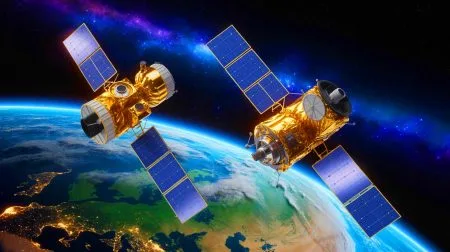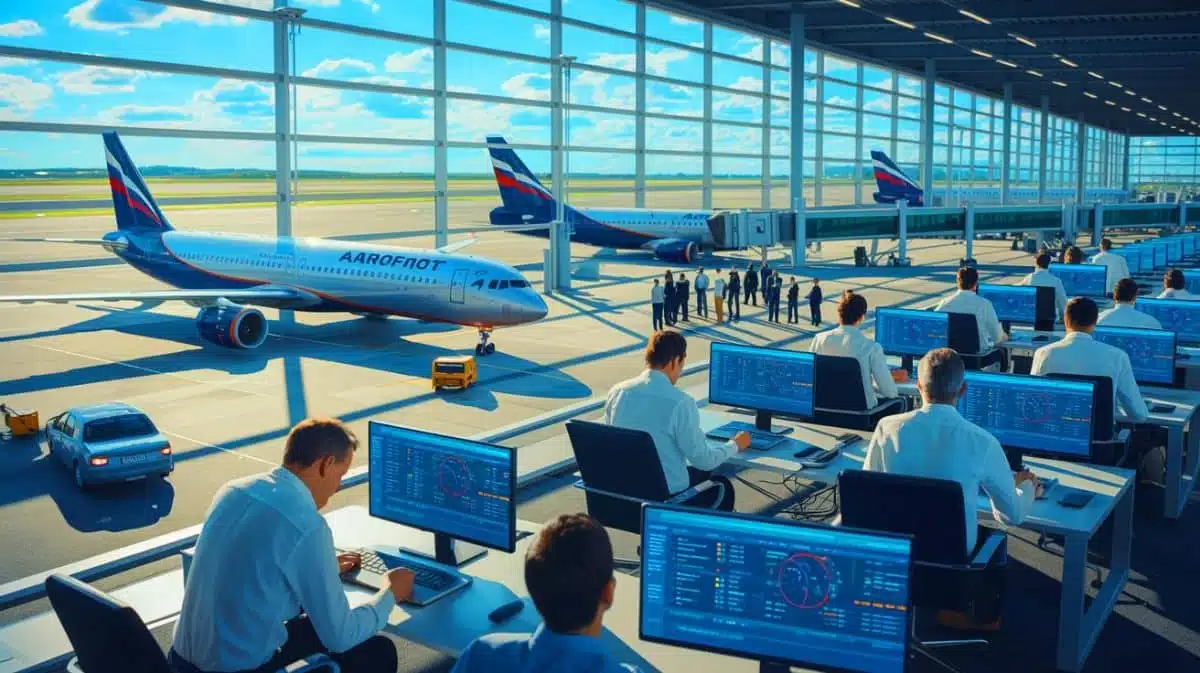| IN A NUTSHELL |
|
On Monday, Russia’s largest airline, Aeroflot, was forced to cancel dozens of flights following a significant disruption in its IT systems. The incident, which left travelers stranded at airports across the country, was reportedly the result of a cyberattack. Both Russian lawmakers and pro-Ukrainian hackers have pointed fingers at each other, with claims and counterclaims flooding the media. As the situation unfolds, the spotlight is on the vulnerabilities of national infrastructures amidst rising geopolitical tensions. This event underscores the delicate nature of global aviation networks and the potential repercussions of cyber warfare.
Impact on Russian Aviation
The cyberattack on Aeroflot had immediate and far-reaching consequences. Approximately 40 flights were canceled, and many more faced delays, primarily affecting domestic routes. However, international routes to Minsk and Yerevan were also disrupted. The chaos at Sheremetyevo airport, one of Moscow’s major aviation hubs, was palpable as passengers struggled to find alternative travel options. The incident highlighted the fragility of transportation networks in the face of digital threats.
This disruption serves as a stark reminder of the interconnectedness of modern infrastructure. As travelers faced long waits and uncertainty, Aeroflot’s reputation suffered. The airline’s reliance on digital systems became evident, raising questions about the preparedness of airlines worldwide to counter similar threats. In a world where aviation is a critical component of global connectivity, such vulnerabilities can have cascading effects on economies and societies.
Allegations and Cyber Warfare
Russian authorities have swiftly moved to characterize the incident as a cyberattack. Prosecutors have launched a criminal investigation, with initial findings aligning with claims made by lawmakers. Anton Gorelkin, a prominent Russian figure, suggested foreign involvement, hinting at the possibility of state-backed initiatives. The gravity of these accusations adds a layer of complexity to the already tense international relations landscape.
Meanwhile, two pro-Ukrainian hacker groups, Silent Crow and Belarusian Cyberpartisans, have claimed responsibility. Their statements on Telegram detail the extent of their infiltration into Aeroflot’s systems. By copying flight history, audio recordings, and surveillance data, these groups have demonstrated a sophisticated level of cyber prowess. Such claims, if proven true, indicate a strategic and well-coordinated cyber offensive.
Claims of Strategic Damage
According to Silent Crow, the damage inflicted on Aeroflot is not just immediate but strategic. They assert that restoration efforts could cost tens of millions of dollars, a figure that underscores the potential financial impact of cyberattacks. The destruction of 7,000 servers and control over personal computers, including those of senior managers, paints a grim picture of the breach’s depth.
This revelation raises critical questions about the security measures in place at major corporations. It also highlights the potential for cyberattacks to evolve into tools of geopolitical influence. As nations grapple with the new realities of cyber warfare, the implications for both public and private sectors are profound.
Broader Implications for Global Security
The Aeroflot incident is not an isolated event but part of a broader narrative of escalating cyber tensions worldwide. As digital infrastructure becomes increasingly integral to national security, the potential for cyberattacks to disrupt daily life grows. The aviation sector, in particular, remains a high-value target due to its critical role in global connectivity.
The incident underscores the importance of international cooperation in addressing cyber threats. As countries navigate the delicate balance between national security and global collaboration, the need for robust cybersecurity frameworks becomes ever more urgent. This event serves as a wake-up call for nations to bolster their defenses and prepare for the evolving landscape of digital warfare.
As the investigation into the Aeroflot cyberattack continues, the world watches closely. The incident raises pressing questions about the future of cybersecurity in a rapidly digitizing world. How will nations adapt to these emerging threats, and what measures are necessary to safeguard critical infrastructures against such attacks? The answers will shape the landscape of international security in the digital age.
Did you like it? 4.6/5 (26)








Wow, this feels like a plot straight out of a spy thriller! 🎬
Is it just me, or are we heading towards a cyber Cold War?
I’m curious, how can airlines improve their cybersecurity to prevent such attacks?
This is why I prefer trains over planes. 😅
Why is it always the passengers who suffer when something like this happens?
Thank you for shedding light on this complex issue. It’s a real eye-opener.
Does anyone else think these hackers are playing with fire? 🔥